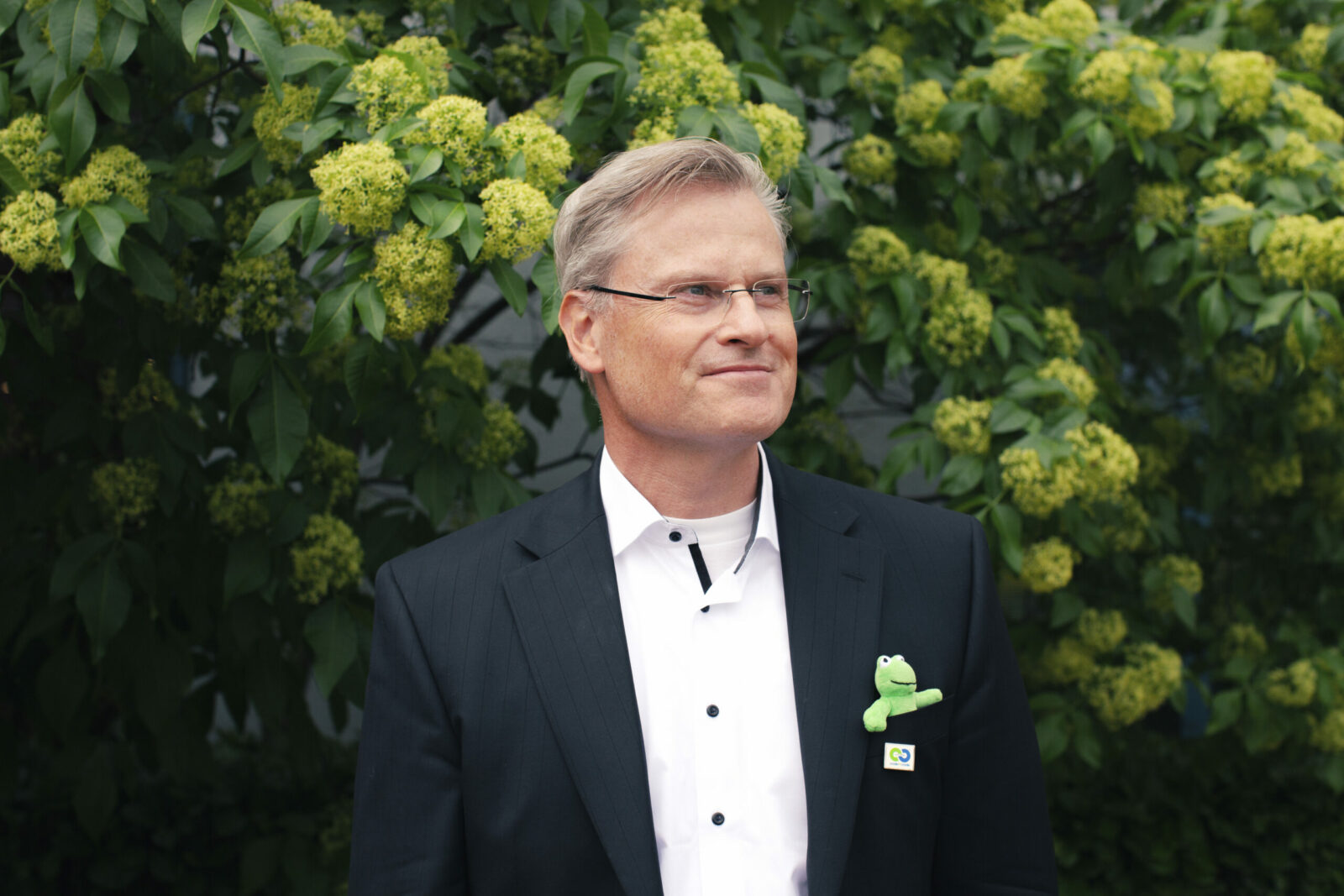Another court bans advertising with “carbon neutral” claims
Werner & Mertz owner: “We will not let up until we get to the bottom of this questionable practice. Consumers’ trust must not be gambled away.“
The Stuttgart Landgericht ruling on 30 December 2022 is yet another slap for ClimatePartner and the next victory for Werner & Mertz in the battle against greenwashing. In response to an application made by the Mainz family company, the regional court prohibited (Az. 53 O 169/22) the advertising of Hygreen vinegar cleaner as “carbon neutral”. The vinegar cleaner was advertised prominently as “carbon neutral vinegar cleaner” on the product packaging and on the company’s website with the ClimatePartner “carbon neutral product” logo. The court classified the advertising as misleading and anti-competitive.
Hygreen was forced to admit in court that it had not accounted for all the emissions caused by its vinegar cleaner throughout the entire product life cycle. In particular, emissions arising in the disposal phase were excluded. Consequently, all the resulting CO2 emissions could not be offset so the claim “carbon neutral vinegar cleaner” was apparently false.
First breakthrough: emissions have to be reduced to an unavoidable level
The Stuttgart regional court put a stop to another widespread practice. The court ruled that unrestricted advertising with carbon neutrality is not allowed when the alleged neutrality is achieved exclusively through the purchase of CO2 certificates. Required instead is “the advertising company’s own efforts toward improving purchasing, production and/or transport processes.” The court could not identify such emission reduction measures at Hygreen.
When a company wants to advertise with a “carbon neutral” claim, it does not suffice to take just any pro forma reduction measures, the court clarified further. Unrestricted advertising with “carbon neutral product” is permitted only when the advertising company has actually reduced the product‘s carbon footprint to an unavoidable amount. Hygreen could provide no proof of that either. That a great deal of reduction potential exists at Hygreen is proven by the fact that the Hygreen bottle itself is made with only 30% recycled plastic – while the PET bottles from Werner & Mertz have consisted of 100% Post-Consumer Recyclate since 2014 and today consist of 50% PCR obtained from household waste collections like the Yellow Bag.
“A company that simply purchases CO2 certificates from often questionable climate protection projects without significantly reducing its own carbon footprint is—in our opinion—engaged in greenwashing. That’s no different from a modern sale of indulgences. The court decision validates that,” says Werner & Mertz owner Reinhard Schneider.

Advertising promises require clarification of product details
Finally, of particular significance is the court’s finding that restrictive comments are always “to be placed on the communications means used for the advertising.” The Hygreen reference to additional information on the company’s website did not satisfy the court when the company advertises “carbon neutral product” on the cleaning product packaging.
“As far as advertising is concerned, the consequence of this judgment is that ugly truths about excluded emissions and the lack of reduction measures can no longer be kept secret or hidden on a website,” says Schneider.
It remains to be seen whether Hygreen, in light of the clear and unambiguous words of the court, will appeal the decision.
Third “carbon neutral” ruling validates the Werner & Mertz position
Werner & Mertz and its subsidiary Tana-Chemie, which serves professional users with its products, have taken legal action in recent months against competitors that have advertised their companies or products as “carbon neutral”. The judgment handed down by the Frankfurt am Main regional court on 17 March 2022 prohibited a German provider of cleaning products for professional users from advertising with the claims “carbon neutral hygiene” and “carbon neutral company”. The competitor had advertised in just that way on its Internet site and in a YouTube video. The court held that the advertising with “carbon neutral” was permitted only when accompanied by extensive explanations on the background of purported carbon offsetting. According to the court, only then could potential purchasers determine “whether a company actually reduced its own CO2 emissions or simply engaged in greenwashing.” The Frankfurt am Main regional court demanded, among other things, information about the excluded emissions, the scope of the CO2 reduction measures, the type of offsets and the supported climate protection projects. The judgment is legally binding.
In a preliminary injunction, another German company from the ecological cleaning products segment that is primarily active in organic markets, was forbidden from advertising with the ClimatePartner logo “carbon neutral company”. The Frankfurt provincial high court and court of appeal (Oberlandesgericht Frankfurt am Main) stated in its judgment of 10 November 2022 that such a logo leads the consumer to believe that “all significant emissions of the ‘company’, including those arising from production, processed raw materials and semi-finished products, are offset.” The competitor conceded during the proceedings that it did not take all Scope 3 emissions into account although those activities are responsible for most emissions. Scope 3 includes emissions related to all raw materials for the products, their packaging and all inbound and outbound logistics. For the awarding of the “carbon neutral company” seal, ClimatePartner GmbH does not require that all emissions caused by the company—particularly the significant ones—are recorded and offset in CO2 emissions accounting. According to ClimatePartner’s “quality guidelines”, it is permissible to exclude most emissions in Scope 3.
“We see this as a clear case of fraudulent labeling because those emission sources make up a significant portion of the actual carbon footprint,“ says Schneider.
As the competitor has not recognized the decision by the Oberlandesgerichts Frankfurt am Main as the final ruling—despite a deadline having been set—Werner & Mertz will file a complaint related to the main issue.
From Wettbewerbszentrale to satirical TV program – independent third parties also criticize “carbon neutral” promises
The problems involving carbon neutrality and CO2 emission offsets have spread beyond the home and laundry care industry (WPR). For example, the Wettbewerbszentrale (Centre for Protection against Unfair Competition) and Deutsche Umwelthilfe (Environmental Action Germany) have taken legal action for some time against supposedly “carbon neutral” advertising claims. Even the NDR satirical program “extra3” in its 1 December 2022 broadcast included a hard-hitting segment in which it exposed conventional tree-planting actions for carbon offsetting as greenwashing. ( » extra 3: Dr. Greenies Baumpflanzland | ARD Mediathek ).
“Unfortunately, the EU Commission has postponed action on the Green Claims directive until the end of 2023, best case. As long as lawmakers do not forbid such misleading claims, we will take legal action ourselves against such greenwashing labels. We will not cease trying to get to the bottom of this issue by asking all the right questions,“ says Schneider.



